When parents choose to part ways, the “child reaction to divorce” can be profound, manifesting as anger, sadness, confusion, anxiety, or fear. It’s essential to recognize and address these emotions to support children through this difficult transition.
It is essential for parents to be aware of their children’s emotional well-being during and after the divorce process. By providing support and guidance, parents can help their children cope with the changes and transitions that come with divorce.

- Understanding Child Reaction to Divorce
- Anger and Frustration
- Sadness and Grief in Children of Divorced Parents
- Anxiety and Fear: Understanding Children’s Emotional Reactions to Divorce
- Confusion and Ambivalence
- Guilt and Self-Blame: Helping Children Navigate Their Emotions after Divorce
- Adjusting to New Family Dynamics
- Seeking Professional Support
- Conclusion


Key Takeaways
- Divorce can have a significant emotional impact on children.
- Children may experience a range of emotions, including anger, sadness, confusion, anxiety, and fear.
- Parents play a crucial role in supporting their children through the divorce process.
- Understanding and addressing children’s emotions is essential to helping them navigate this challenging time.
- Professional support, such as therapy, can be beneficial for children who are struggling to cope with their emotions.
Understanding Child Reaction to Divorce
Divorce is a major life event that can have a profound impact on children’s emotional well-being. The disruption of a child’s sense of stability and security can result in a range of emotional reactions, from sadness and grief to anger and frustration.
Research has shown that children of divorced parents are more likely to experience emotional and behavioral problems compared to those from intact families. These can include anxiety, depression, aggression, and academic difficulties.
While divorce can be a challenging experience for everyone involved, children may be particularly vulnerable to its effects. It is important for parents to recognize the emotional impact of divorce on their children and take steps to address their needs.
The Emotional Reactions to Divorce
Divorce can trigger a wide range of emotional reactions in children, including:
- Sadness and Grief: Children may feel a sense of loss and grief as they adjust to their new family dynamic and the absence of one parent from their daily life.
- Anger and Frustration: Children may express feelings of anger and frustration over the disruption to their family life and the changes in their routine.
- Anxiety and Fear: Children may worry about the future and experience anxiety about the impact of divorce on their lives.
- Confusion and Ambivalence: Children may feel uncertain about their feelings towards their parents and their new family dynamic.
- Guilt and Self-Blame: Children may blame themselves for their parents’ divorce and feel guilty about their role in the family breakdown.
The Impact of Divorce on Children
The emotional reactions to divorce can have a significant impact on children’s well-being. Children of divorced parents may experience:
- Lower academic achievement
- Increased behavior problems
- Poorer mental health
- Greater risk of substance abuse
- Difficulty forming and maintaining relationships
It is important for parents to be aware of these potential consequences and take steps to minimize their impact on their children.


“Divorce is difficult for everyone involved, but it is important to remember that children may be particularly vulnerable to its effects. By understanding the emotional reactions of children to divorce, parents can take steps to provide the support and guidance their children need to navigate this challenging time.”
Anger and Frustration
It is common for children to express anger and frustration during and after their parents’ divorce. They may lash out verbally or physically, have difficulty controlling their emotions, and become easily agitated or irritated. The disruption of a stable family life can create a sense of uncertainty and anxiety, leading to these emotional reactions. Children’s anger after divorce and frustration in children of divorced parents are natural responses to a challenging and upsetting situation.
As a parent, it is essential to understand that your child’s anger is not directed at you but at the situation. It is crucial to validate their feelings and allow them to express themselves while maintaining clear boundaries around acceptable behavior. Take time to listen to their concerns and offer reassurance that their emotions are normal and that things will get better in time.
One effective strategy to help children cope with anger and frustration is to encourage them to engage in physical activities such as sports or exercise. This can help release pent-up energy and reduce stress levels. Enrolling them in a structured program with peers, such as martial arts or dance, can also provide a sense of routine and social connection.
Another way to support your child is to establish consistent routines and rules at home. This can help create a sense of stability and security, reducing feelings of frustration and anger. Additionally, seeking professional support from a therapist or counselor can be beneficial for children who are struggling with their emotions.
| Do | Don’t |
|---|---|
| Validate your child’s feelings | Dismiss their emotions |
| Encourage physical activity | Ignore behavioral issues |
| Establish routines and rules | Overindulge them to make up for the situation |
| Seek professional support | Try to handle everything on your own |
Remember, children’s anger after divorce and frustration in children of divorced parents are normal and understandable reactions to a difficult situation. As a parent, you can support your child by actively listening to their concerns, creating a sense of routine and stability at home, and seeking professional support when necessary.


Sadness and Grief in Children of Divorced Parents
Divorce can be an emotionally confusing experience for children, leaving them feeling unsure of their place in the world and uncertain about their future. One of the most common emotions children experience during and after their parent’s divorce is sadness. It’s essential for parents to understand that children may express sadness in different ways, such as crying, becoming withdrawn, or lashing out.
Children may also experience grief after their parents’ divorce. They may grieve the loss of their family structure or the absence of a parent from their daily life. It’s important for parents to allow their children to express their grief in their own way. Parents can create a safe space for their children to talk about their feelings and provide support and comfort during the grieving process.
It’s also important for parents to recognize that children may not fully understand their emotions during this time. This lack of understanding can make it difficult for children to express themselves effectively. Parents can help by providing age-appropriate explanations of what is happening and validating their child’s emotions.
“It’s important for parents to allow their children to express their grief in their own way.”
Ways to Help Children Process Their Sadness and Grief
Here are some ways parents can help their children process their sadness and grief:
- Encourage them to talk about their feelings
- Provide age-appropriate explanations of what is happening
- Validate their emotions
- Offer comfort and support
- Allow them to grieve in their own way
- Seek professional support if needed
Remember, it’s okay for children to feel sad and grieve after their parents’ divorce. By providing a safe and supportive environment, parents can help their children process their emotions and begin to heal.
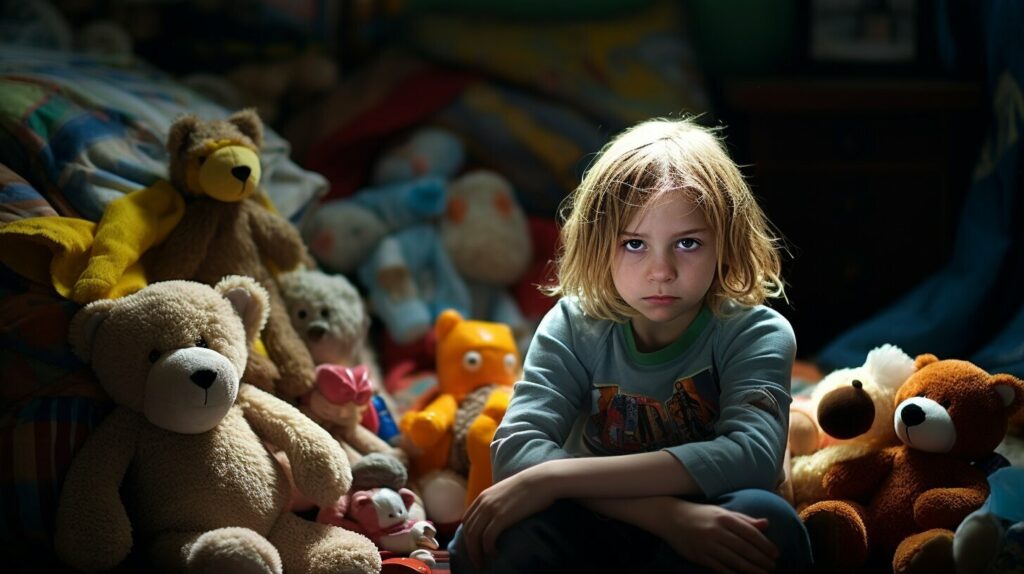

Anxiety and Fear: Understanding Children’s Emotional Reactions to Divorce
Divorce can create fear and anxiety in children, who may worry about the future and their place within their family. These emotions can manifest in a variety of ways, such as trouble sleeping, being clingy, or having nightmares. Parents can help their children cope with these feelings by being patient, reassuring, and understanding.
It is important for parents to recognize that anxiety and fear are a normal part of the divorce process for children. By acknowledging their child’s feelings and being available to talk through their concerns, parents can help their children feel more secure about their future and reduce their anxiety.
One way parents can help alleviate their children’s anxiety is by maintaining a regular routine and providing structure. Children thrive on predictability, and establishing consistent routines can help them feel more secure during a time of upheaval.
Another helpful strategy is to involve children in decision-making about their own lives. This can help them feel more in control and less fearful about what the future holds. For example, parents can have their children help choose new furniture or decorate their new room, which can give them a sense of ownership over their new home.
Expert Tip:
“Encourage children to express their feelings in a safe and supportive environment. This can be through journaling, drawing, or talking to a therapist. Remember that children process difficult emotions differently than adults, so it’s important to be patient and understanding.”
In addition to providing emotional support at home, parents can also seek help from professionals, such as therapists or counselors, who specialize in working with children and families going through divorce. These professionals can offer specialized support and guidance for children who are struggling with anxiety or fear related to their parent’s divorce.
By understanding and addressing the anxiety and fear that children may experience during and after a divorce, parents can help their children feel more secure and stable during this challenging time. With patience, love, and support, children can learn to navigate the complex emotions of divorce and develop resilience for the future.


Confusion and Ambivalence
Divorce can be a confusing and uncertain time for children, often leaving them feeling unsure about their future. Children may feel torn between their parents, wondering which one to side with or feeling guilty for wanting to spend time with the other parent.
It’s important for parents to recognize this confusion and ambivalence and provide clear, consistent communication to help ease their children’s fears. Encourage your children to ask questions, express their concerns, and provide honest, age-appropriate answers.
“Mommy and Daddy are getting a divorce, but we both still love you very much. Things will be different, but we will always be here for you no matter what.”
Reassure your children that they are not responsible for the divorce and that both parents will continue to love them and be a part of their lives.
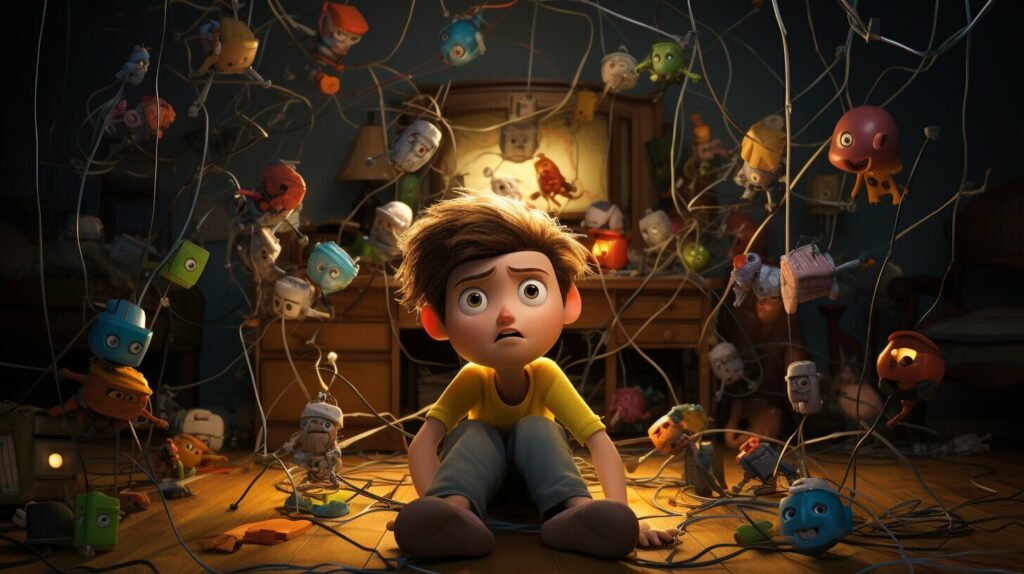

It’s also important to establish a consistent routine and stick to it as much as possible. This can provide a sense of stability and predictability during an otherwise uncertain time. Additionally, consider counseling or therapy for your children if they are struggling to cope with their emotions.
“Children may feel like the divorce is their fault or that they have to choose between their parents. It’s important to provide reassurance and consistent communication to help alleviate their confusion and ambivalence.”
Guilt and Self-Blame: Helping Children Navigate Their Emotions after Divorce
Divorce can be a tumultuous time for children, and it’s not unusual for them to feel a sense of guilt or self-blame in the aftermath. Children may feel as though they are responsible for their parent’s separation or that they could have somehow prevented it. As a parent, it’s important to recognize and address these emotions to help your child process this difficult time.
It’s important to understand that child reactions to divorce such as guilt and self-blame are not uncommon after a divorce. It’s a normal part of their emotional response to the upheaval of their family structure. As a parent, you can help your child understand that the divorce was not their fault and that they are not to blame.
Encourage your child to express their emotions freely and validate their feelings. Let them know that it’s okay to feel sad, angry, or confused and that you are there to support them through this challenging time. It’s important to listen to your child without judgment and to offer reassurance and comfort whenever they need it.
It’s also essential to avoid placing blame or criticizing your ex-spouse in front of your child. Children may feel torn between their parents after a divorce, and negative comments or criticism can exacerbate feelings of guilt and self-blame. Encourage your child to maintain a positive relationship with their other parent when possible, and to communicate openly and honestly about their feelings.
Ways to Help Your Child Cope with Guilt and Self-Blame
Here are some strategies that can help your child cope with feelings of guilt and self-blame after a divorce:
- Encourage your child to talk about their feelings and express themselves.
- Validate your child’s emotions and offer support and comfort.
- Avoid blaming or criticizing your ex-spouse in front of your child.
- Help your child maintain a positive relationship with their other parent when possible.
- Consider seeking professional support for your child if needed.
Remember that every child processes divorce differently, and there is no one-size-fits-all solution. Be patient with your child and offer support and understanding throughout the process. With time, patience, and love, your child can come to terms with their emotions and begin to heal from the pain of divorce.
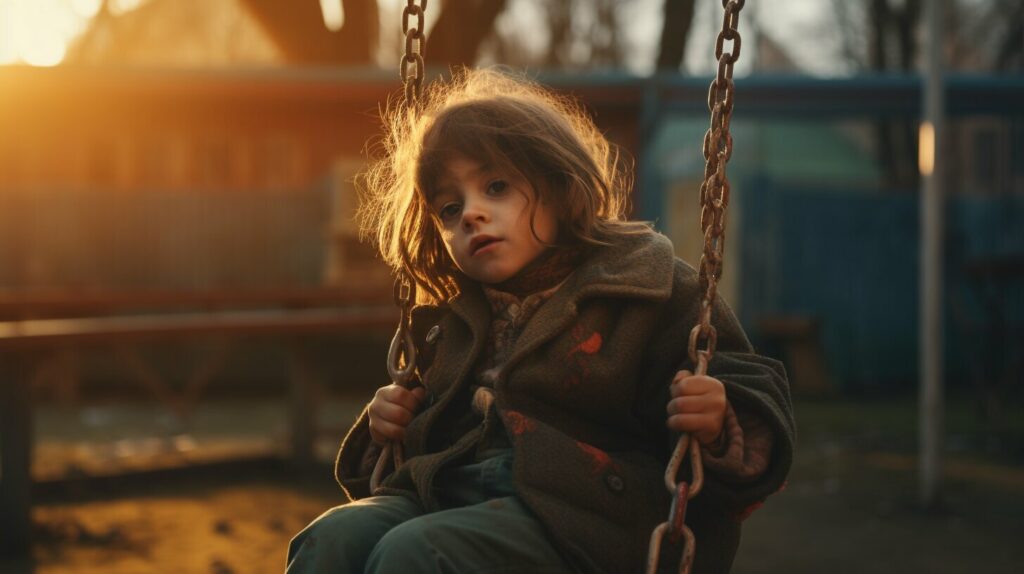

Adjusting to New Family Dynamics
Divorce can be a significant change for children, especially when it comes to adjusting to new family dynamics. It’s essential for parents to understand that this process takes time and requires patience and understanding.
Here are some tips to help children adjust to their new family situation:
- Open communication: Encourage children to express their thoughts and feelings openly. Offer reassurance and validate their emotions.
- Establish new routines: Create new family routines that can provide a sense of stability and predictability for children.
- Be mindful of transitions: Help children transition smoothly between homes by creating a consistent routine
- Collaborate with the ex-spouse: Work with the ex-spouse to ensure consistency throughout the parenting process and avoid confusing children with different rules or routines in each household.
It’s also important to recognize that each child may react differently to new family dynamics. Some may embrace the change, while others may struggle with it. By remaining attuned to children’s needs and feelings, parents can help ease the adjustment process and foster healthy relationships.


Seeking Professional Support
The “child reaction to divorce” encompasses a spectrum of emotions, making it a taxing period for families. Though parents offer vital support, procuring professional assistance is essential for children finding it hard to manage.
Professional support can come from a variety of sources, including therapists, counselors, and support groups. These resources can provide children with a safe space to express their feelings, receive guidance on how to cope and develop healthy coping strategies.
It’s important for parents to prioritize finding the right support for their children, as all kids have unique needs. Therapists and counselors can offer individualized support and guidance, while support groups can offer a sense of community and a space for children to connect with other kids facing similar challenges.
Parents should also prioritize their own mental health during this time, as they can better support their children when they are feeling emotionally and mentally strong. Seeking support for themselves can also serve as a model for their children, demonstrating the importance of prioritizing emotional well-being.
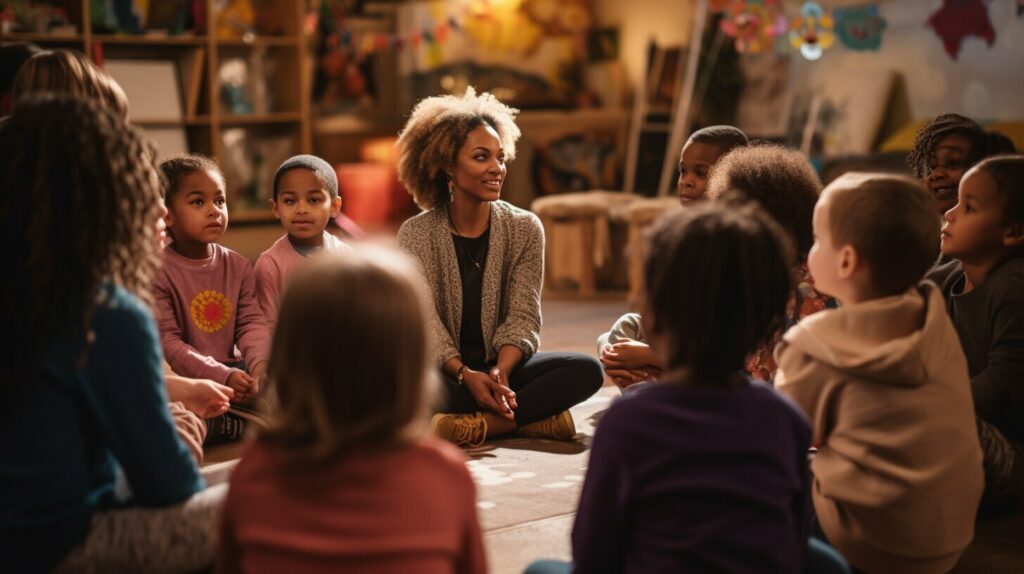

Remember, seeking professional support is a sign of strength, not weakness. By prioritizing emotional well-being, children and families can navigate this challenging time with resilience and strength.
Conclusion
Divorce is never easy, especially for children who may struggle with a range of emotions during this time. It is essential for parents to understand and address their child’s reactions to divorce, as ignoring these feelings can lead to long-term negative impacts on their well-being.
Supporting Your Children
Remember that your children’s emotions are valid and that they need your support. Encourage them to express how they feel, listen to them, and reassure them that they are not to blame for the divorce. Help them to adjust to the changes in their family dynamic and be patient as they navigate their feelings.
Seeking Professional Help
If you notice that your child is struggling with their emotions or having difficulty adjusting to the changes, seek professional support. A therapist or counselor can provide your child with the tools they need to cope with their feelings and help them develop healthy coping mechanisms.
The Importance of Communication
Effective communication is pivotal in addressing the “child reaction to divorce.” Be transparent with your children about the forthcoming changes, and invite them to express their feelings and questions. Through open dialogue, you can ease their anxieties. While divorce is challenging, showering your children with love, support, and empathy can make their journey smoother.



FAQ
What are some common emotional reactions children may have to divorce?
Children may experience a range of emotions including anger, sadness, anxiety, confusion, and guilt.
How does divorce impact children emotionally?
Divorce can disrupt a child’s sense of stability and security, leading to various emotional responses.
What can parents do to help children cope with anger and frustration after divorce?
Parents can provide support, engage in open communication, and help children find healthy outlets for their emotions.
How can parents help children process sadness and grief after divorce?
Parents can create a safe space for children to express their emotions, validate their feelings, and seek therapeutic support if needed.
What strategies can parents use to alleviate anxiety and fear in children after divorce?
Establishing routines, providing reassurance, and maintaining open lines of communication can help alleviate anxiety and fear in children.
How can parents provide clarity and reassurance to children experiencing confusion and ambivalence after divorce?
Parents can offer age-appropriate explanations, maintain consistency, and provide opportunities for children to ask questions and express their concerns.
What can parents do to address feelings of guilt and self-blame in children after divorce?
Parents can reassure children that the divorce is not their fault, encourage self-compassion, and seek professional guidance if needed.
How can parents help children adjust to new family dynamics after divorce?
Parents can promote open communication, set realistic expectations, and create a supportive and nurturing environment for children to adapt to new dynamics.
What are some resources for seeking professional support for children of divorced parents?
Parents can seek help from therapists, counselors, or support groups specializing in children’s emotional well-being during and after divorce.
How should parents navigate the challenges of divorce while supporting their children?
It is important for parents to prioritize their children’s emotional needs, seek support for themselves, and foster a positive and loving environment during this challenging time.


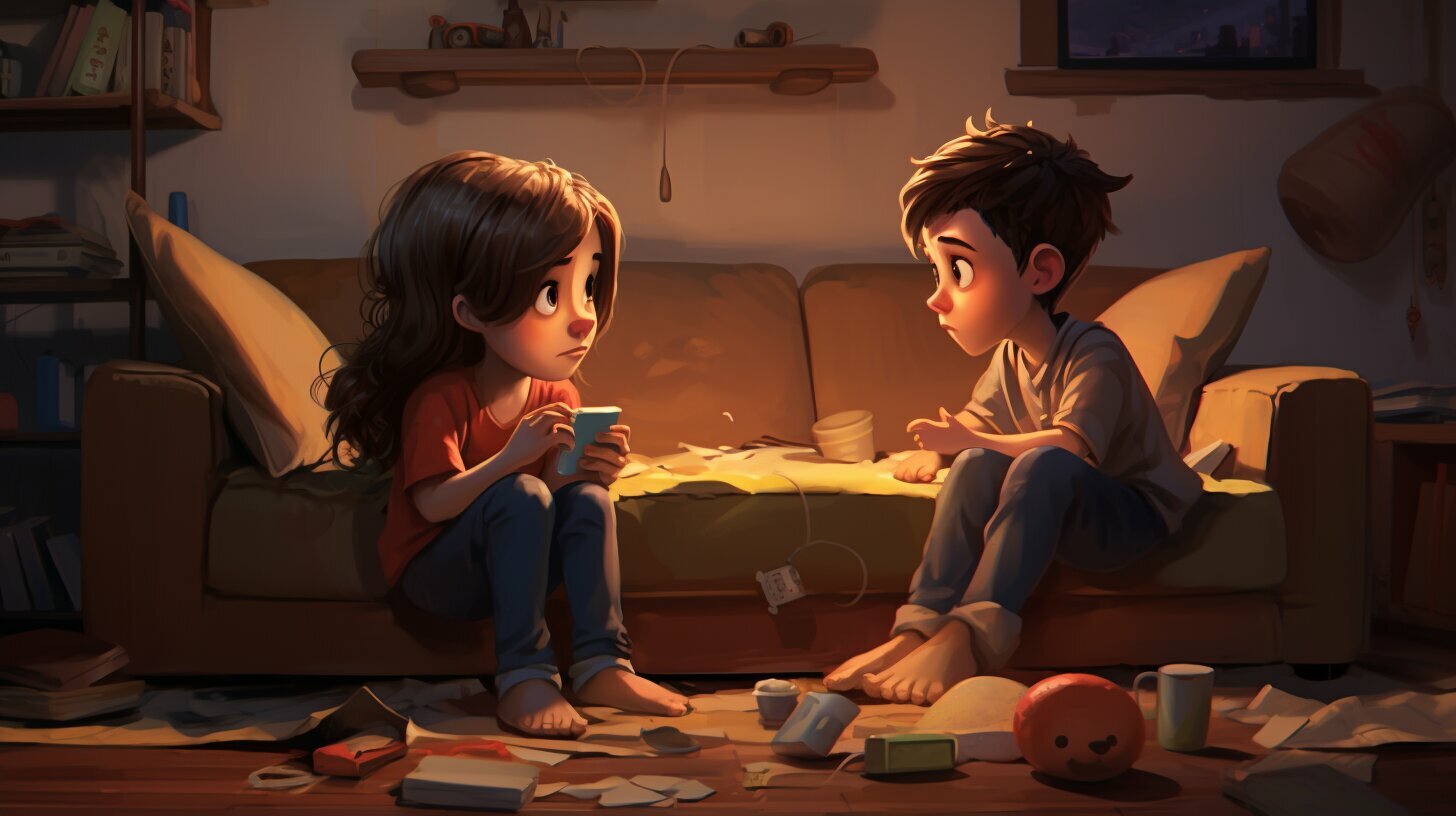


Leave a Reply